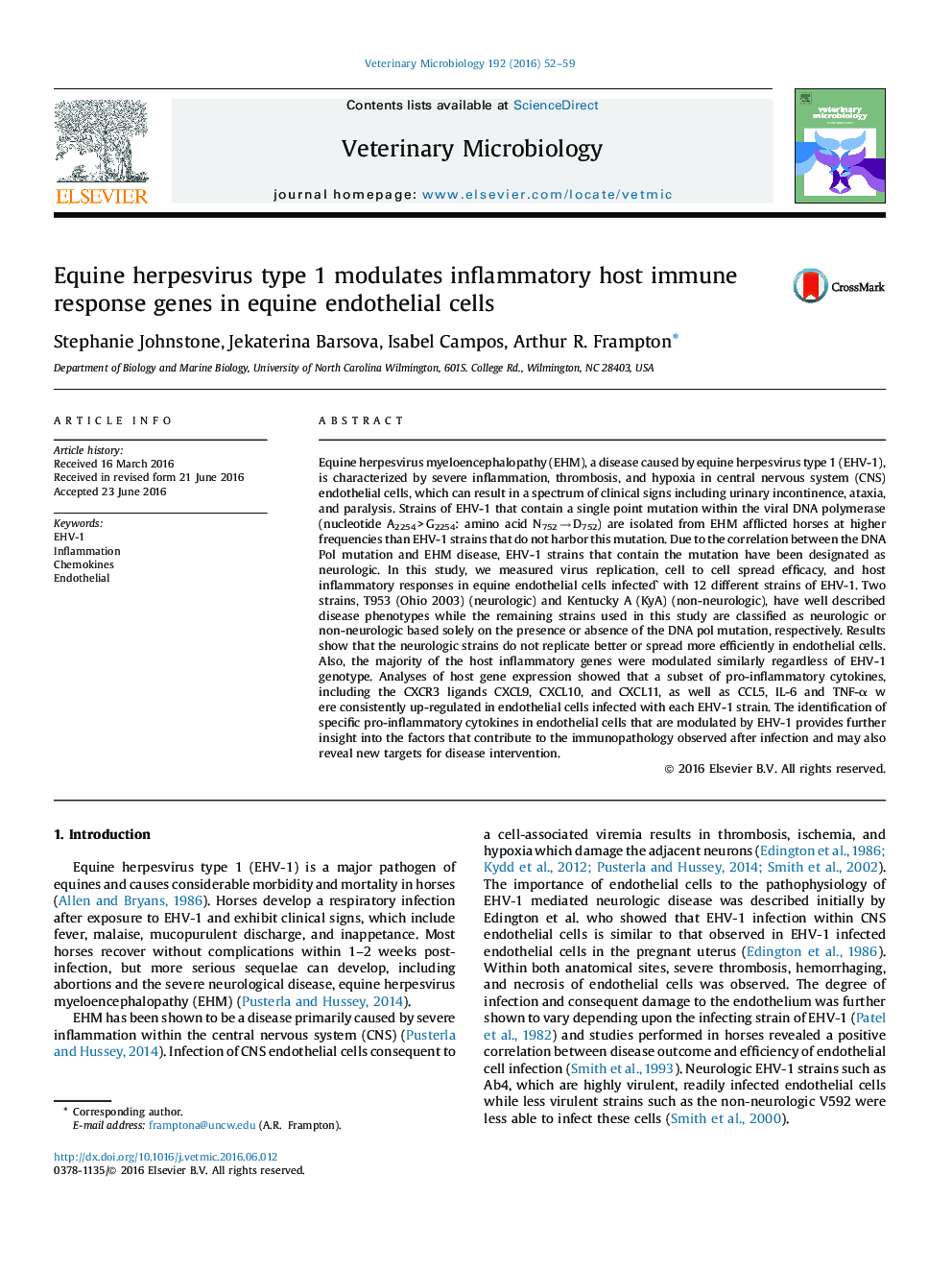| کد مقاله | کد نشریه | سال انتشار | مقاله انگلیسی | نسخه تمام متن |
|---|---|---|---|---|
| 5799617 | 1555331 | 2016 | 8 صفحه PDF | دانلود رایگان |
- Profile of equine endothelial host immune response genes elicited by equine herpesvirus type 1.
- Up-regulation of inflammatory cytokines including the CXCR3 ligands, CXCL9, CXCL10, and CXCL11.
- Analysis of replication and cell to cell spread for multiple EHV-1 strains in endothelial cells.
Equine herpesvirus myeloencephalopathy (EHM), a disease caused by equine herpesvirus type 1 (EHV-1), is characterized by severe inflammation, thrombosis, and hypoxia in central nervous system (CNS) endothelial cells, which can result in a spectrum of clinical signs including urinary incontinence, ataxia, and paralysis. Strains of EHV-1 that contain a single point mutation within the viral DNA polymerase (nucleotide A2254 > G2254: amino acid N752 â D752) are isolated from EHM afflicted horses at higher frequencies than EHV-1 strains that do not harbor this mutation. Due to the correlation between the DNA Pol mutation and EHM disease, EHV-1 strains that contain the mutation have been designated as neurologic. In this study, we measured virus replication, cell to cell spread efficacy, and host inflammatory responses in equine endothelial cells infected with 12 different strains of EHV-1. Two strains, T953 (Ohio 2003) (neurologic) and Kentucky A (KyA) (non-neurologic), have well described disease phenotypes while the remaining strains used in this study are classified as neurologic or non-neurologic based solely on the presence or absence of the DNA pol mutation, respectively. Results show that the neurologic strains do not replicate better or spread more efficiently in endothelial cells. Also, the majority of the host inflammatory genes were modulated similarly regardless of EHV-1 genotype. Analyses of host gene expression showed that a subset of pro-inflammatory cytokines, including the CXCR3 ligands CXCL9, CXCL10, and CXCL11, as well as CCL5, IL-6 and TNF-α were consistently up-regulated in endothelial cells infected with each EHV-1 strain. The identification of specific pro-inflammatory cytokines in endothelial cells that are modulated by EHV-1 provides further insight into the factors that contribute to the immunopathology observed after infection and may also reveal new targets for disease intervention.
Journal: Veterinary Microbiology - Volume 192, 30 August 2016, Pages 52-59
